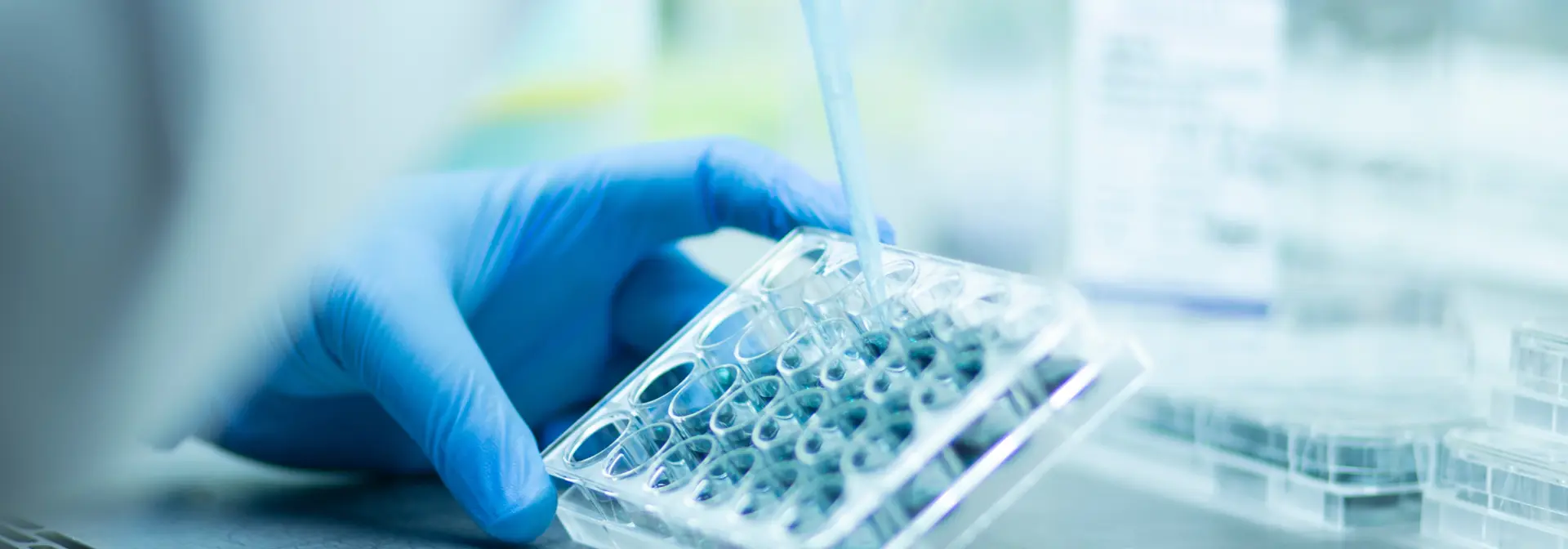Key information
The Institute of Biological Chemistry, Biophysics and Bioengineering (IB3) is focused on applying advances in the chemical, physical, and engineering sciences to enable and enhance life science research.
- Funding
- Self-funded
- School
- Engineering and Physical Sciences
- Location
- Edinburgh
- Award
- PhD
- Delivery type
- Full-time
- Start date
- Varied
The interdisciplinary research interests of the members and the state-of-the-art facilities provide a unique, stimulating environment for integrative research.
Life scientists, physicists, chemists, engineers and mathematicians work together to enhance the acquisition of data and maximise the information extracted from it. We run and participate in major training, research and access networks including the Edinburgh Super-Resolution Imaging Consortium, the Multiplexed “Touch and Tell” Optical Molecular Sensing and Imaging Interdisciplinary Research Centre, as well as collaborative projects to grow synthetic blood from stem cells, new diagnostics, foetal DNA separation technologies, cancer biology, diabetes, high-speed bio-imaging and analysis and 3D printing of stem cells.
IB3 brings together biological chemistry, biophysics and bioengineering in one research institute. Research at the interfaces between quantitative biological research and the physical sciences and engineering is recognised as a strategic priority area for EPSRC, MRC, BBSRC, STFC and the Wellcome Trust and we are in receipt of substantial funds from these agencies. When you study with us, you will join a highly interdisciplinary team that exploits the best facilities and technologies to provide solutions for the biomedical questions of tomorrow.
We pride ourselves on our supportive and stimulating environment for postgraduate students. In addition to academic supervisors, each postgraduate is supported by a mentoring scheme. We run a highly rated “Core Skills week” that brings new research students up to speed quickly to recognise the concepts, people and facilities they need to make progress from the beginning.
There is also a Postgraduate Association, which organises seminars, social events and careers advice, and provides a vibrant peer-to-peer support network for students. Funding is available to enable students to travel to present data at international conferences.
Examples of the types of research projects on offer:
- Development of light-regulated tools for biomedical research
- Super-resolution and functional imaging of ion channel molecular activity in living cells
- Microfluidic enrichment of donor DNA for detection of pancreatic islet graft rejection
- Development of cutting-edge downstream bioprocessing
Entry requirements
Candidate criteria
Please contact Institute to discuss.
Funding information
| Status | Full Time |
|---|---|
| Scotland | £5,151 |
| England / Wales / N Ireland | £5,151 |
| International | £26,296 |
- Status: Your residency status is usually defined as the country where you have been ordinarily resident for the three years before the start of your course.
- International: 'International' includes applicants from European Union countries who do not hold Pre-Settled or Settled status in UK. (This does not include students from the Republic of Ireland - see above).
Additional information
Funding
Funding for research programmes is on a case by case basis. Please contact the institute for more information.
We offer a number of competitive funded scholarships for research degrees. Full or partial support may be available for well-qualified candidates from UK research councils, research pools, charities or industry.
View our full range of scholarships.
Why Heriot-Watt
We're the top university in Scotland for graduate outcomes which means that more of our graduates are employed or in postgraduate education than any other institution in the country and we ranked 5th in the UK.
We're also rated number one in the UK for CEO or MD roles, meaning more of our graduates go on to become CEOs or MDs than any other university in the whole of the UK. On top of that, we have beautiful campuses, across the globe, so you'll get a truly international education. Our Edinburgh Campus is home to Oriam, Scotland's National Sports Performance Centre combined with plenty of wellbeing resources, prioritising fitness and mental health for all students. Our Global Research Institutes look at solving real world issues such as climate change and saving our oceans as well as working on the next medical technological breakthrough and the future of AI and robots.

